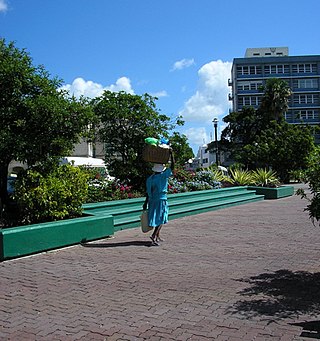In the United Kingdom and the British Overseas Territories, personal bravery, achievement, or service are rewarded with honours. The honours system consists of three types of award:

The Most Excellent Order of the British Empire is a British order of chivalry, rewarding contributions to the arts and sciences, work with charitable and welfare organisations, and public service outside the civil service. It comprises five classes of awards across both civil and military divisions, the most senior two of which make the recipient either a knight if male or a dame if female. There is also the related British Empire Medal, whose recipients are affiliated with, but not members of, the order.

The title of Knight Bachelor is the basic rank granted to a man who has been knighted by the monarch but not inducted as a member of one of the organised orders of chivalry; it is a part of the British honours system. Knights Bachelor are the most ancient sort of British knight, but Knights Bachelor rank below knights of chivalric orders. A man who is knighted is formally addressed as "Sir [First Name] [Surname]" or "Sir [First Name]" and his wife as "Lady [Surname]".
The House of Lords Appointments Commission (HOLAC) is an independent advisory non-departmental public body in the United Kingdom with oversight of some aspects of the Peerage of the United Kingdom. It has two roles:
The Barbados National Honours and Decorations system is similar to that of the United Kingdom. Likewise, it consists of three types of award – honours, decorations and medals. Appointments are made on a yearly basis on Independence Day by the president of Barbados.
Sir Frank Leslie Walcott, KA, OBE was a Barbadian trade unionist, politician, ambassador and one of the eleven National Heroes of Barbados. He played a key role in organizing the Barbados labour movement and was a major figure in stimulating participation in the nation's political process.
The Order of Saint Lucia is an order of chivalry established in 1986 by Elizabeth II, Queen of Saint Lucia.
The 2009 Special Honours in New Zealand were announced in August 2009 as a result of the reinstatement of the appellations of "Sir" and "Dame" to the New Zealand Royal Honours System by passing Special Regulation 2009/90 Additional Statutes of The New Zealand Order of Merit, a legally binding regulation with the force of law in New Zealand.
As part of the British honours system, the Special Honours are issued at the Queen's pleasure at any given time. The Special Honours refer to the awards of the Order of the Garter, Order of the Thistle, Order of Merit, Royal Victorian Order and the Order of St John. Life Peerages are at times also awarded as special honours.
Ceylonese recipients of British titles conferred on the advice of Her Majesty's Ceylon Ministers. This list includes all those who were born in, worked in or lived in Ceylon.
The Honours Committee is a committee within the Cabinet Office of the Government of the United Kingdom formed to review nominations for national honours for merit, exceptional achievement or service. Twice yearly the Honours Committee submits formal recommendations for the British monarch's New Years and Birthday Honours. Members of the Honours Committee—which comprises a main committee and nine subcommittees in speciality areas—research and vet nominations for national awards, including knighthoods and the Order of the British Empire.

The 2015 Dissolution Honours List was issued on 27 August 2015 upon the advice of the prime minister, David Cameron. The Life Peerages were announced separately from the other appointments, while it was gazetted as a single list on 22 September 2015.
As part of the British honours system, Special Honours are issued at the Monarch's pleasure at any given time. The Special Honours refer to the awards made within royal prerogative, operational honours and other honours awarded outside the New Years Honours and Birthday Honours.
As part of the British honours system, Special Honours are issued at the Monarch's pleasure at any given time. The Special Honours refer to the awards made within royal prerogative, operational honours and other honours awarded outside the New Years Honours and Birthday Honours.
As part of the British honours system, Special Honours are issued at the Monarch's pleasure at any given time. The Special Honours refer to the awards made within royal prerogative, operational honours and other honours awarded outside the New Years Honours and Birthday Honours.
As part of the British honours system, Special Honours are issued at the Monarch's pleasure at any given time. The Special Honours refer to the awards made within royal prerogative, operational honours, political honours and other honours awarded outside the New Years Honours and Birthday Honours.

The Order of National Heroes is the supreme honour within the national honours system of Barbados and was established by the Order of National Heroes Act 1998 by the Parliament of Barbados. Members are referred to as National Heroes, and are accorded the style "The Right Excellent". The Order recognises the most prominent figures in Barbados' history. As of June 2024, Sir Garfield Sobers and Rihanna are the only two living persons conferred with the title.
As part of the British honours system, Special Honours are issued at the Monarch's pleasure at any given time. The Special Honours refer to the awards made within royal prerogative, operational honours, political honours and other honours awarded outside the New Years Honours and Birthday Honours.
Sir Fred Winlyn Gollop was a politician and attorney from Barbados.



